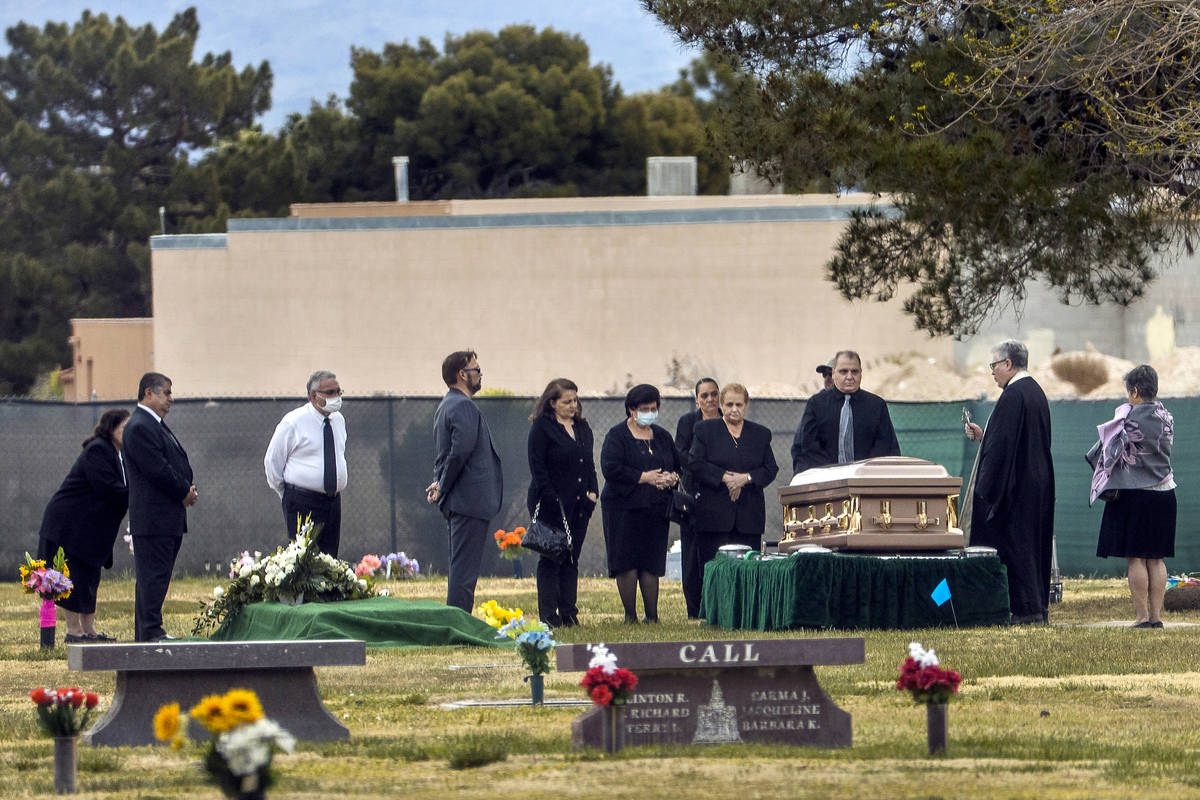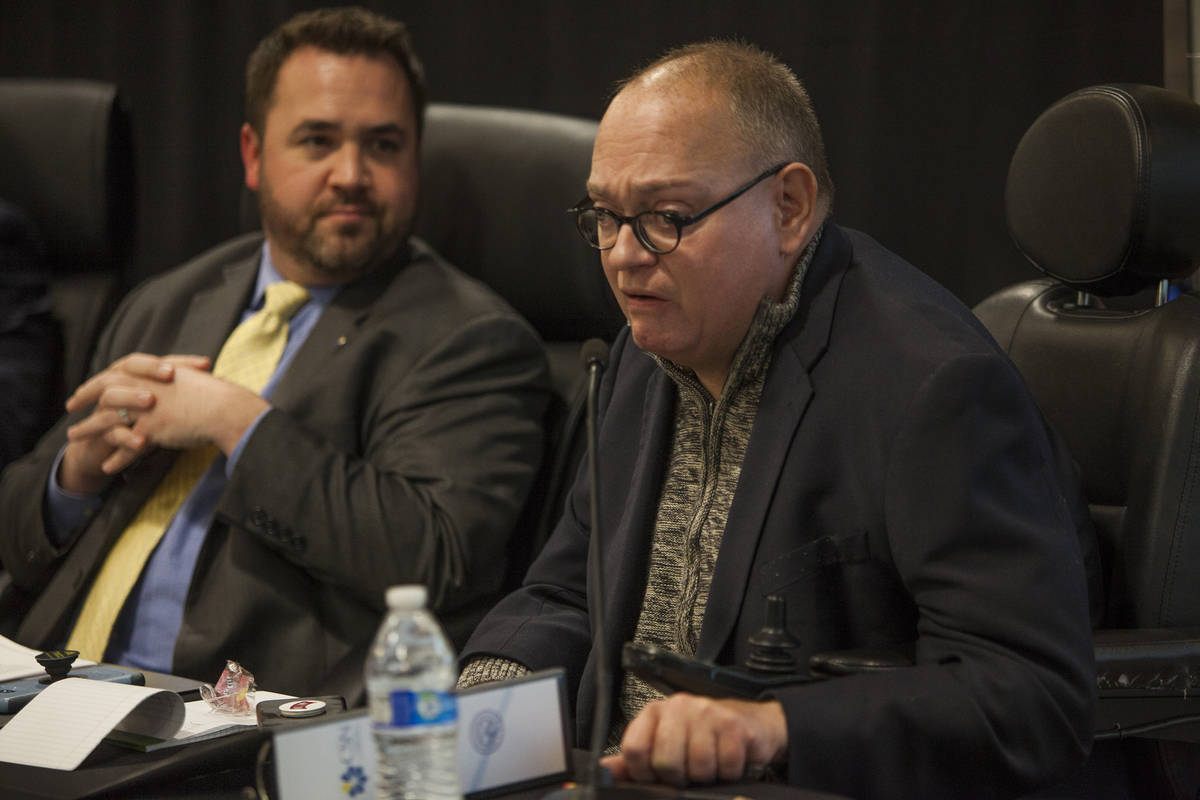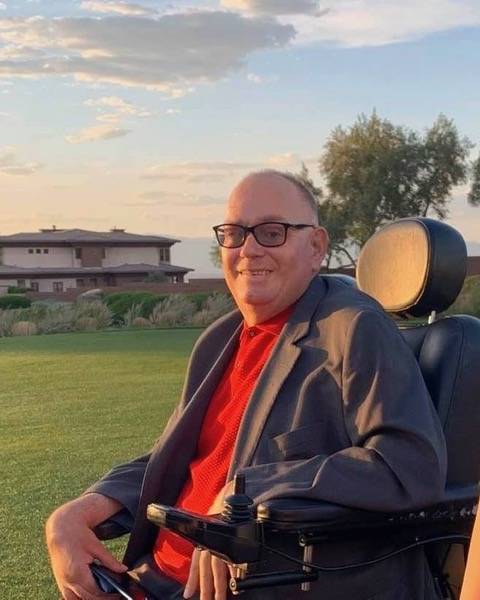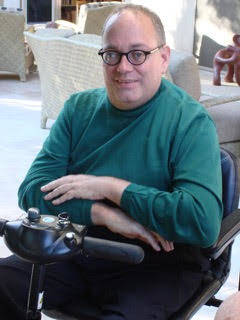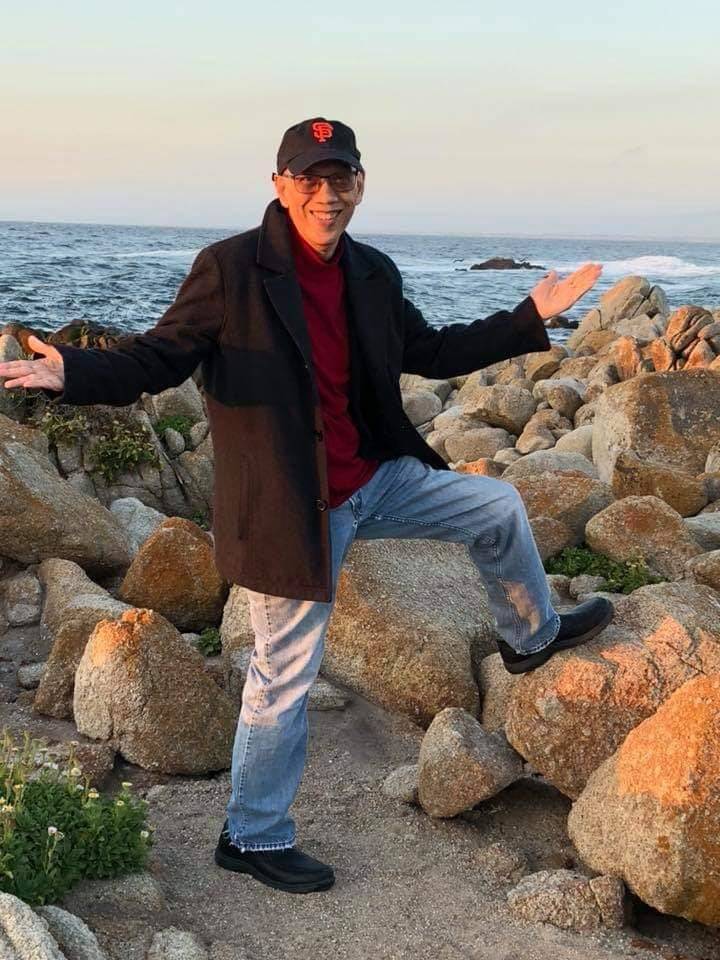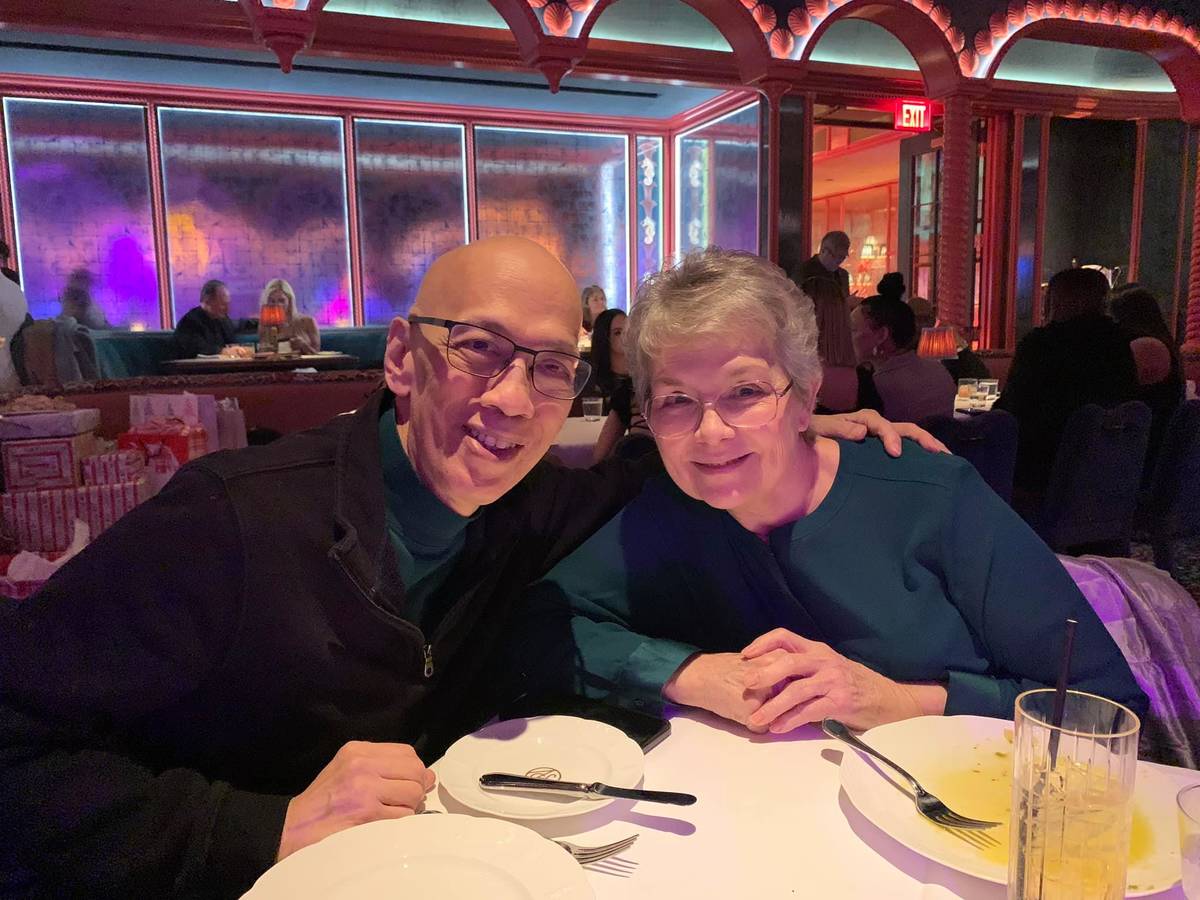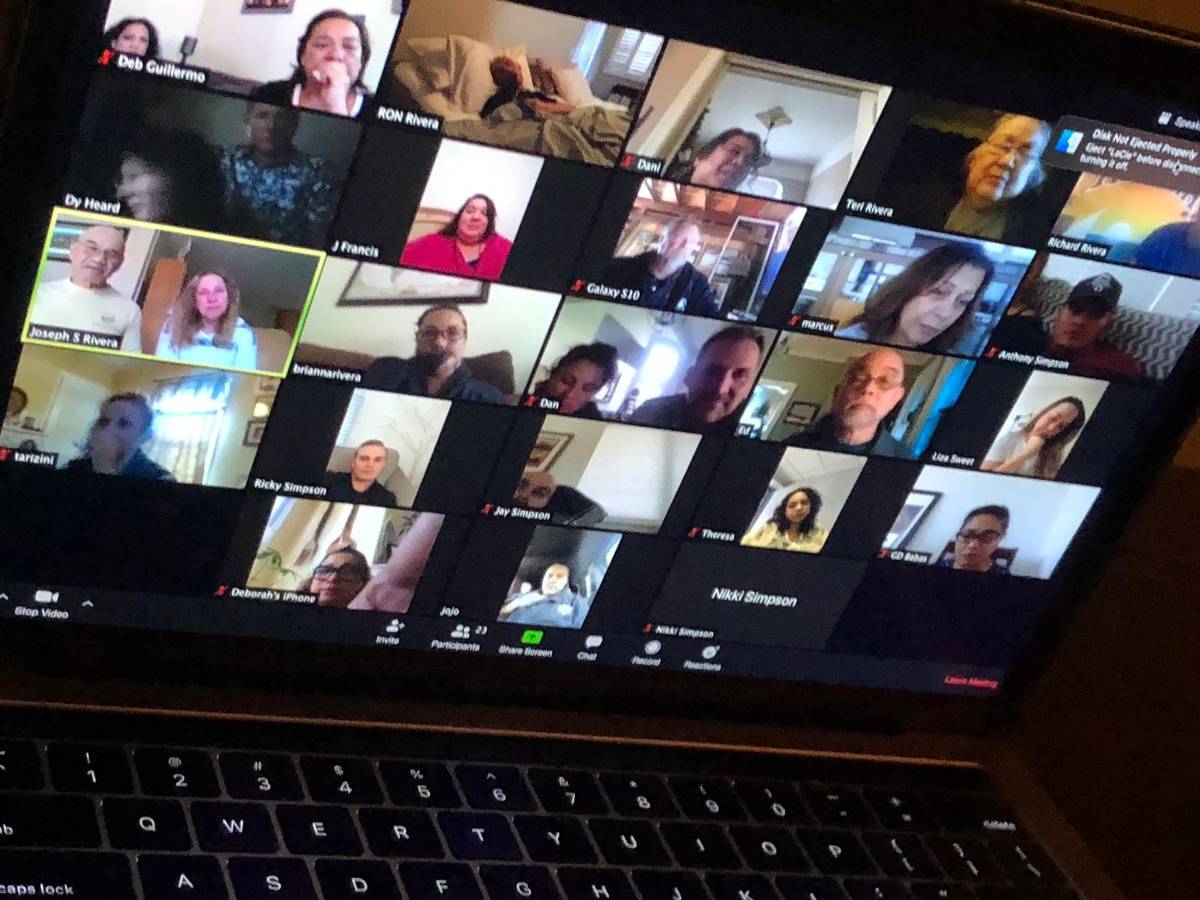Coronavirus pandemic has changed the ways we mourn
Sam Lieberman knew everybody, from senators to barbers. But when he died April 3 at age 58, nobody attended his memorial service.
Stay-at-home orders and a state prohibition against large gatherings prevented people from attending an in-person memorial. And while hundreds watched an online service for Lieberman, who served on the Nevada Board of Regents and was active in state Democratic politics, the solitary cemetery service was extraordinary for someone so well-known and respected.
It’s a cruel irony of the coronavirus pandemic that the virus not only steals our loved ones, but also the familiar and comforting rituals that help us mourn their passing.
However, clergy, counselors and funeral directors say that remembering loved ones still can be meaningful if people focus not on what they’ve always done, but on what they have to do for now.
Unexpected realities
The last few weeks have required jarring changes to traditional mourning rituals.
The Catholic Diocese of Las Vegas has suspended funeral Masses indefinitely. Monsignor Gregory Gordon, pastor of St. Anne Catholic Church, said the dead are being buried with a graveside service, and families are given the opportunity to schedule a memorial Mass later.
Prayers for the dead are offered during livestreamed Masses — public Masses also have been suspended indefinitely — and some families have streamed graveside services. “Everybody seems really understanding,” Gordon said, though these extraordinary measures are departures from Catholic tradition.
“We have taken advantage of multiple options for remembrance,” including livestreaming memorial services, videoconferencing and using social media to create “virtual celebrations of life,” said Celena DiLullo, president of Palm Mortuaries. “We’re just trying to accommodate (families) the best way we can.”
Kraft-Sussman Funeral and Cremation Services also offers streaming of services, according to owner Laura Sussman, who said about half of her clientele are Jewish. She said some mourners are using videoconferencing to pray for the deceased during the traditional period following burial known as sitting shiva.
Many families are delaying a service, Sussman said, opting for immediate burial or cremation and scheduling a memorial service for later. “We’ve had a number where we do a burial and nobody goes, not even a spouse. They say, ‘I’m going to do something when we can be together with my family.’ ”
It’s understandable but sad, she said. The person who died may have had “a full, rich life and (has) affected hundreds, if not thousands of people in a positive way, and nobody can gather together to celebrate that person’s life.”
The nature of the pandemic also can complicate or worsen grief. Cheryl Johnston, a social worker at Nathan Adelson Hospice, cited the example of an elderly couple in which the husband is hospitalized for COVID-19.
“The wife can’t go along because she’s also in a high-risk category. You face survivor guilt, you face caregiver guilt. ‘Did I bring it home? Was I the cause of it? Could I have done something different?’ So all these factors come into play.”
“And you have to remember that just being in a pandemic is traumatic,” she said. “So you have grief on top of trauma.”
The suspension of traditional funerals and ceremonies is “changing how we mourn, absolutely,” Johnston said.
Funerals “provide all of the elements of ritual for us,” she said. “They confirm the reality that someone has died, and they provide a means of (doing so) in a structured way. Funerals validate the social importance of a loss, because you have other mourners. So when that’s taken away, what we have to do is find a new meaning and new rituals to allow us to grieve, because you’re going to grieve no matter what. Grief is simply recognizing a loss.”
But Michelle Paul, director of The Practice community mental health training clinic at UNLV said grief is highly personal.
“There’s no proper way or right way to grieve. I would caution people to avoid thinking that they’ve been robbed of the proper way to do this, because if we are approaching this rigidly … I think we set the stage for further grief.”
Differences and opportunities
“It is different,” said Rabbi Yocheved Mintz of Congregation P’nai Tikvah. “And, in fact, there are silver linings to the difference.” For example, more than 600 people participated in Sam Lieberman’s online memorial service — many more than would have been accommodated in person.
“Sure, we wanted to embrace one another. We wanted to cry on each other’s shoulder,” Mintz said. “And we will. We’ll welcome that day when it’s here. But this is all we can do now.”
Jonathan Lieberman, Sam’s brother, said, “For somebody who was so social and so omnipresent in the community, the fact that no one could publicly mourn his passing was strange.” But having so many people attend virtually “was healing in a way,” he said. “It was as good as it could have been in the circumstances.
“When things get back to normal, whenever that is, we’ll probably have some type of gathering here in Las Vegas for his Las Vegas friends and then bury his ashes in (the family plot) in Minneapolis.”
Saying goodbye
Raquel Sanchez lost her stepfather, Ronald Sanchez Rivera, 66, a Navy veteran and longtime registered nurse, on April 2. The family chose cremation now and will hold a gathering in California later.
“We’re doing a celebration of life with all his family and friends and church when this coronavirus thing is over. But we have no idea when that’s going to be,” Sanchez said.
“The last day he was alive, we set up a Zoom call with his family. It was two hours long, and I sat on the ground next to Ron’s bed. They each took turns talking to Ron, telling him how they loved him and sharing memories with the rest of the family. It was very much like a digital vigil,” she said.
“My father passed away in 2001, and people brought food over. The church came to help me and my mom. It’s just not like that now. We wanted (them) to be here, but we did the best we could with the technology.”
Be flexible
Mintz encourages those who have lost loved ones to find different ways to express their grief. She and others who knew Sam Lieberman are assembling a virtual “book of life” containing images and remembrances. Other ways to mark someone’s death could be as simple as cooking a special meal, planting a tree or telling stories to one another about a loved one’s life.
While it’s not the same as being there, technology can provide “an element of processing and acknowledging the reality of the loss,” Johnston said. “It’s important that people do not allow themselves to be further isolated by the loss.”
“I think we’re going to have to lean in (on) the flexibility of things being different,” Paul said. “None of that takes away from the value of the loved one’s loss or the pain and heartbreak of those left behind.”
Contact John Przybys at jprzybys@reviewjournal.com or 702-383-0280. Follow @JJPrzybys on Twitter.



